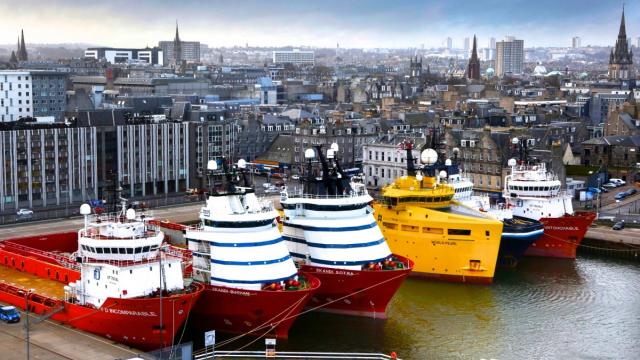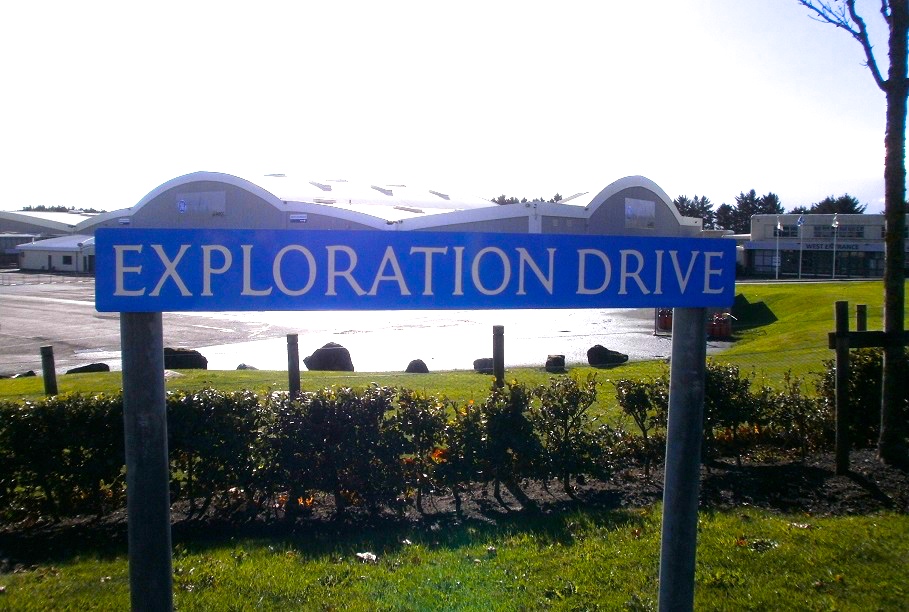
Europe’s oil capital, Scotland, is shifting from boom to bust. The low price of a barrel of oil is quickly reducing fossil fuel exploration in the North Sea, which is operated from the city of Aberdeen. Decline in the petroleum industry is good news of course for the climate; to ensure a livable future we need to leave 80% of oil in the ground or below the sea.
But the demise of North Sea oil will also decimate a massive employer in the northeast of Scotland, where around 375,000 people work in connection to the industry. Occupy.com spoke recently with several oil experts to consider how Aberdeen, once the nation's glowing economic hub, could flourish beyond fossil fuels – and what its slowdown means for the Scottish economy overall.
“There is no investment into new projects and no growth," said David Kelly, who works creating software for major project development there, and has 40 years of experience in the oil industry. "Instead, all the work is in core maintenance on aging platforms and without new investment. More and more rigs will be decommissioned.”
Responding to the constant stream of job cuts being announced across the industry, he said: “It has probably not gone as bad as it will in the next couple of months. I think we have still got some major reductions to come. We have not seen the collapse in house prices yet, but I think the crunch is coming soon.”
Oil wealth has had a dramatic impact on Aberdeen in recent decades. The city has some of the highest property prices anywhere in the U.K. – but the economic growth has been unevenly spread. Like the rest of the U.K., the city has seen an explosion in poverty and people relying on food banks.
Like many, Kelly is aware that Aberdeen has already seen its best days. Now, he says the skills, expertise and infrastructure in the city should be harnessed toward growing the renewable energy industry, particularly tidal and offshore wind generation. If the transfer doesn't happen, those people with energy expertise will leave Scotland to find jobs overseas. “The oil industry talks a good game about transferring the skills into renewables, but they’d rather just have a cheaper place to drill,” he said.
An Historic Lesson
Parallels can be found between the demise of North Sea oil and Britain’s coal mines in the 1980s. As another heavy polluting industry, the fall of British coal meant an improvement for the environment, but it devastated those communities tied to the business. Swathes of mining areas remain depressed to this day.
The major shutdown of coal operations, led by Margaret Thatcher, was done without creating alternative jobs. In the case of Aberdeen and North Sea oil, Kelly said the opposite needs to happen: the oil industry should be nationalized and new climate-friendly jobs created. Kelly, however, doesn't expect Westminster to make it happen.
“Transforming the oil industry to renewables needs expenditure, commitment and control over the industry that the Scottish government simply does not have, and which the Westminster government does not understand.”
What happens next to North Sea oil and its aging infrastructure is a multi-billion pound question, as estimates suggest the decommissioning of old oil rigs will cost between £35-40 billion over the next three to four decades. “We should realize that North Sea oil is a national asset. If there was strategic management, there could be long-term conservation of the infrastructure with the oil converted towards making durable material products rather than transport fuel, which is of course only adding to global warming,” said Brian Parkin, an energy and environment research fellow at the University of Leeds.
Solutions Stemming from a Dying Industry
Parkin asserts that burning fossil fuels makes no sense. But, adding another dimension to the environmental debate around oil and gas, he suggests a diverse range of compounds made from petrochemicals could provide an economic and climate solution – by turning those products into recyclable goods. This could include everything from surgical equipment to engineering and load-bearing materials.
One substance that exemplifies the environmental benefits of continuing to use oil is carbon graphite, which is stronger than metal equivalents. Using already accessible oil reserves, he said, would translate into a lower impact than metal mining. A further example is using oil for new semi-conductive components in computers – again reducing the need for mining fresh minerals.
“Making diverse products from oil and gas would enable a new range of new material innovations, with new applications," added Parkin. But this "will require developing more skills, areas of expertise and scientific knowledge.”
Like Kelly, Parkin believes these and other advances are only possible if government takes control of the oil industry. He suggested that democratic scrutiny would allow assets to be created for the benefit of people and the planet, not merely immediate corporate profit. There is also an economic justification for the nation taking control of its oil: the North Sea is a harsh environment, where oil drilling is expensive and risky and where extraction has only occurred with massive state support. North Sea tax breaks and subsidies from 2009 to 2014 cost Britain over £700 million annually, and U.K. Chancellor George Osborne this year announced an extra £1.3 billion in industry support.
The future for Aberdeen remains uncertain. If Westminster continues to maintain its firm grip on North Sea oil, it will continue to prop up an industry that is in decay, with large profits for oil companies coming at a steep price to people and the climate. But there are sound alternatives. Aberdeen could again become a boom city – this time as a central hub bringing in the renewables revolution.
3 WAYS TO SHOW YOUR SUPPORT
- Log in to post comments












